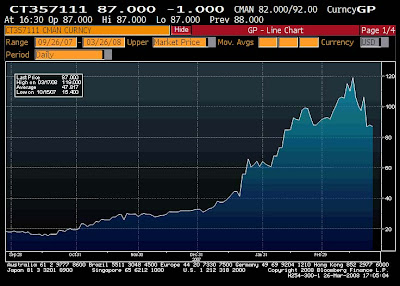CIFG Asks Fitch To Cease Rating Its Financial Guarantors; Ambac Presentation
CIFG is the latest party to ask Fitch to end the rating of its insurance subsidiaries. CIFG Holding Ltd said on Monday it asked Fitch Ratings to withdraw ratings for its CIFG Guaranty bond insurance unit and two affiliates, citing a lack of confidence in the credit agency's approach. The request to withdraw insurer financial strength ratings for CIFG Guaranty, CIFG Assurance North America Inc and CIFG Europe was disclosed hours after Fitch cut CIFG's ratings for a second time this month, amid worries about its capital position and exposure to U.S. subprime mortgage debt. CIFG said it believed Fitch "is not in a good position to accurately determine the appropriate capital requirements for CIFG's insured portfolio"... The other major credit rating agencies, Standard & Poor's and Moody's Investors Service, have also taken away CIFG's "triple-A" credit ratings. MBIA asked Fitch to stop rating it about a month ago so the problems faced by Fi...





.jpg)
.jpg)


